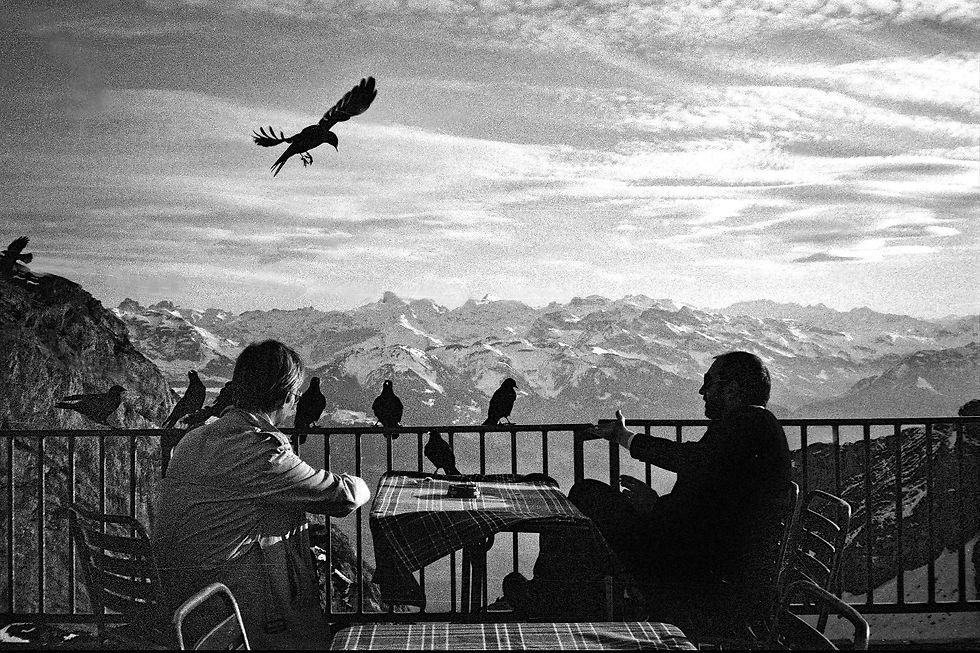Actor Joanna Holden on Menopause, Power and the Monster Within: Countess Dracula comes to Camden People’s Theatre
- Cultural Dose

- Oct 31, 2025
- 3 min read
What first drew you to reimagining Dracula through the lens of menopause?
I was sat on the underground one day feeling tired and menopausal, envying the young people around me who looked full of life and shiny. I’d had a discussion with a gynaecologist about taking testosterone. They said, “It’s not tested for women,” and I feared growing sideburns and God knows what else. As I glanced at the young men laughing, I thought of sucking their blood to bring back new life to me and a forgotten libido! Of course, that made me think of Dracula: awake through the night, alone and on a quest to be forever young. He had power and charm and a seeking for blood lost, and he was coming for all of our women, and I thought of the menopause.

Menopause is still something society tends to avoid talking about. Why do you think that is?
It’s sad, isn’t it, because for some of us it’s a major transition, a huge part of our lives, and we are changed by it. It’s not as if we can dance in the bushes with other women; we still have to face the world and all our responsibilities: ageing parents, teenage children, and still be at the top of our game in the workforce. It’s a capitalist society where we have to be a high-functioning part of the machine, and there’s very little room for peace and rest to re-evaluate what we want now, now we have more awareness of time past and time left. Not all women find it difficult, but for those that do, it’s a time for sharing and understanding and shouting and saying yes and saying no, and seeing the funny side if you can, along with the horror.
How empowering was it for you personally to embody the role of Countess Dracula, and how is it different from other roles you have performed in?
It’s been an interesting journey, and like my menopause, it is in no way complete. I guess the roles I have played before have been rooted in someone else’s imagination, and it’s been my job to put the jigsaw puzzle together and create a rounded character. Recently I’ve played Mrs Snowball, a formidable landlady from Hull, and Mrs Bennett in Pride and Prejudice. Both of these ladies were post-menopausal women that could be demonic. Countess Dracula is me as a menopausal woman relating to the horror and the monster that is Dracula, and trying to harness that sense of power and freedom and honesty and even the vulnerability that I think Dracula has.
What classic elements from the original tale have you kept, and how difficult was it to adapt?
We didn’t want to do an adaptation of Dracula with a female Dracula, as this has been explored many times brilliantly before, so we have cherry-picked recognisable elements of the classic vampire tale that is Dracula and woven it into our story of a struggling, lonely, menopausal woman who finds strength and courage whilst embodying Countess Dracula and is free to express the internal horror.
I understand you ran workshops with women living through the menopause as part of the show’s development. How did their experiences influence the making of the show?
We had a great time in Scunthorpe working with women of a certain age. Gosh, even that phrase is used in a foreboding way. We played games, we asked them what a menopausal Dracula would mean for them, and mostly we shared experiences. People wanted to talk, to hug, to be angry at a society that didn’t make space for this, at doctors who brushed them off, who assumed they were no longer sexually active and had given up on aspects of their lives. There was laughter and tears and swearing, but mostly camaraderie and a holding of each other. It confirmed that there was a story to tell, and some of the things they described are in the show.
Could you tell us about the imagery used in the show? How have you gone about representing something that is unique to everyone who experiences it, and for those in the audience who will never experience it?
Our designer brought in some red sand to play with. It became a giving metaphor for time passing, heat, dryness, blood, feelings of slipping away to nothing, to dust, wanting to bury oneself. The colour red is very present for blood and the loss of blood and the embarrassment one can feel. The show is set in a fading seaside town, a vaudeville act where the curtains hang ruched. (One of the ladies shared that a doctor had described her vagina as now looking like a ruched curtain.)
Countess Dracula will run at Camden People’s Theatre from 29 October – 1 November 2025. Ticket link is HERE.




Comments